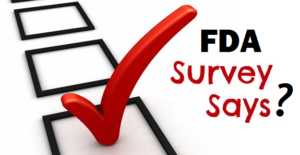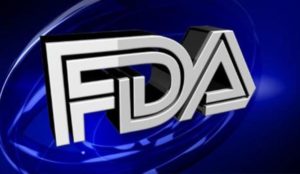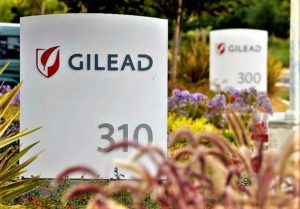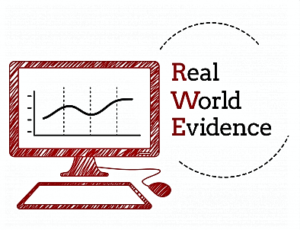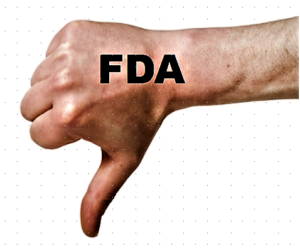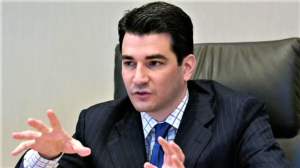- FDA to study how drug promotion affects doctors’ decisions (biopharmadive.com)
The Food and Drug Administration is planning to survey 2,000 healthcare professionals to better understand how prescription drug promotion affects the decisions they make...Promotional activities include meetings with pharmaceutical sales representatives, presentations given at industry-sponsored events, and journal or direct mail advertisements. In 2012, drugmakers spent north of $24 billion marketing their products to physicians, according to data cited by the FDA..."Although HCPs (healthcare professionals) are learned intermediaries, like most people, they may rely on heuristics in making decisions and may have cognitive biases in the type of information they attend to at any given time. They may be persuaded by strong statements and may not have the time to ascertain accuracy of such information," the FDA wrote in a notice posted on the Federal Register on March 15..."There is little qualitative research on people’s attitudes to promotion, and this is a major gap," the organization said. "In order to understand people’s perspectives and values more clearly, in‐depth interviews are needed...
- US FDA track and trace: Industry welcomes data standardisation (in-pharmatechnologist.com)
The US Food and Drug Administration released the Standardization of Data and Documentation Practices for Product Tracing – guidance last week, which elaborates on industry standards relating to the Drug Supply Chain Security Act...(which) aims to build an electronic system to trace prescription medicines in the US...The move to fully electronic traceability information is a positive step in terms of data integrity, availability and exchange in the supply chain...It is important firms within the pharmaceutical supply chain move in the same direction and embrace the advantages of technology and digitisation... Moving to a completely electronic system should only bring advantages to CMOs and the wider industry, improving data integrity and security and reducing the time and resource needed to produce and exchange traceability...
- FDA to Launch New Pilot Program for Orphan Designation Requests (raps.org)
With more than 700 orphan designation requests last year, the Food and Drug Administration...announced a new pilot program to make the request process more efficient...The pilot will include a new form intended to make the submission process easier for sponsors to complete orphan designation requests, and to make the process more efficient for FDA...FDA also released an on-line tutorial to guide sponsors through the submission process and Gottlieb noted there is a new inter-center consult process to streamline and standardize communications...In addition to the pilot, FDA vowed to eliminate the orphan drug designation backlog, and is planning a public meeting to discuss the scientific and regulatory issues related to cancer treatments that target a tumor’s genetic features rather than its location in the body...“We’ll also consider the appropriate application of orphan incentives to this new paradigm of drug development, and how we apply designations to these indications,”...
- Gilead’s freshly approved Biktarvy faces patent hurdle (drugstorenews.com)
Gilead Sciences’ new HIV treatment Biktarvy has been approved by the Food and Drug Administration — but its novel component is also the subject of patent infringement litigation from GSK...Biktarvy is a triple-therapy HIV treatment that brings together bictegravir’s unboosted integrase strand transfer inhibitor with the dual nucleoside transcriptase inhibitor backbone of emtricitabine, tenofovir alafenamide — which are the two components of Gilead’s Descovy...However, now bictegravir is at the center of GSK’s lawsuit, which was filed in the U.S. District Court for the District of Delaware, as well as in Canadian Federal Court in Toronto. GSK’s majority-owned Viiv Healthcare said it is looking to prove that Biktarvy’s use of bictegravir infringes on a patent covering its dolutegravir and other compounds that use dolutegravir’s chemical scaffold. The company said it would seek financial redress...
- Britain’s use of copycat biotech drugs takes off while US lags (reuters.com)
Cut-price copies of an expensive Roche biotech drug for blood cancer have taken 80 percent of the British market since launching last year, saving the healthcare system $113 million a year...The rapid adoption of two so-called biosimilar forms of rituximab from Celltrion and Novartis has been accompanied by discounts of 50 to 60 percent as the National Health Service has used tenders to bring down costs...The situation contrasts sharply with the United States, where regulators have lagged Europe in approving biosimilars while a complex system of rebates offered to insurers by original-brand drugmakers has created barriers to use...The U.S. logjam prompted Food and Drug Administration Commissioner Scott Gottlieb to complain of "rebating mischief" and a "rigged payment scheme"...
- Big pharma, big data: why drugmakers want your health records (reuters.com)
Drugmakers are racing to scoop up patient health records and strike deals with technology companies as big data analytics start to unlock a trove of information about how medicines perform in the real world...Studying such real-world evidence offers manufacturers a powerful tool to prove the value of their drugs...Real-world evidence involves collecting data outside traditional randomized clinical trials, the current gold standard for judging medicines, and interest in the field is ballooning...The ability to capture the experience of real-world patients, who represent a wider sample of society than the relatively narrow selection enrolled into traditional trials, is increasingly useful as medicine becomes more personalized...It’s getting more expensive to do traditional clinical trial research, so industry is looking at ways it can achieve similar goals using routinely collected data...The thing that has made all this possible is the increasing digitization of health records...Food and Drug Administration...believes more widespread use of real-world evidence (RWE) could cut drug development costs and help doctors make better medical choices...Under the 21st Century Cures Act, the FDA has been directed to evaluate the expanded use of RWE...As the breadth and reliability of RWE increases, so do opportunities for FDA to also make use of this information...
- FDA approves first blood test to help diagnose concussions (statnews.com)
The Food and Drug Administration gave a green light...for the first time to a blood test that doctors can use to help rule out concussions...The Brain Trauma Indicator, marketed by Banyan Biomarkers Inc., measures the levels of two proteins — called UCH-L1 and GFAP — whose elevated presence suggests a certain type of brain damage normally only visible on a CT scan. The test takes three to four hours, and doctors could use it to determine which patients need a CT scan to confirm the damage and which patients can rest easy...FDA Commissioner Scott Gottlieb said that this product could save the health care system money by preventing unnecessary neuroimaging tests. Additionally, by sparing some patients CT scans, it would reduce the radiation exposure associated with those scans.
- Numbers show drugmakers are keeping RTFs under wraps (biopharmadive.com)
When Celgene Corp. revealed receipt of a Refusal-to-File letter for its blockbuster hopeful multiple sclerosis drug ozanimod, shares in the big biotech dropped as much as 10%...The decline is no surprise — such a major disclosure was bound to hit Celgene's stock price because the Food and Drug Administration's decision not to accept the New Drug Application will significantly impact the time when (and if) ozanimod ever gets to market, potentially costing Celgene hundreds of millions in future sales...But not all pharmas seem to be so upfront with shareholders about the letters from the FDA, according to a BioPharma Dive analysis...Public disclosure therefore falls to the company when it receives one of these rejections. Company executives can disclose as much or as little information about the letters as they deem appropriate...There has been controversy over the issue for years related to CRLs (Complete Response Letters) — and public and investor outcry for the FDA to publish the letters...it comes down to what is "material" to investors, something defined by the Securities and Exchange Commission but which also gives companies some latitude...
- EU-US Mutual Recognition Agreement on Inspections: Four Member States Added (raps.org)
The European Medicines Agency...announced that the Food and Drug Administration has confirmed the capabilities of regulators in the Czech Republic, Greece, Hungary and Romania to participate in a mutual recognition agreement focused on drug manufacturing inspections...Under the agreement, FDA can now rely on inspections conducted in 12 member states (the first eight were added in October 2017 – Austria, Croatia, France, Italy, Malta, Spain, Sweden and UK) to replace its own inspections. EMA said that plans are still on track for the mutual recognition agreement to be operational in all member states by 15 July 2019...Mutual benefits under the agreement for both EU and FDA authorities, which has been in place almost exactly a year, include: Avoiding duplicative inspections and reducing the administrative burden and costs, improving the use of inspection resources to focus on manufacturing sites of higher risk, and improving the ability to identify and address potential problems at manufacturing sites before they become a public health risk.
- FDA’s Scott Gottlieb wants to use funding boost to create a Center of Excellence on Digital Health (fiercehealthcare.com)
The Food and Drug Administration plans to use a proposed $400 million boost in federal funding to focus on a range of innovative approaches to speed the approval of new medical devices and create a new center that would support digital health oversight and address cybersecurity concerns...FDA Commissioner Scott Gottlieb, announced...That would include specific carve-outs planned for a new Center of Excellence on Digital Health and furthering the agency’s ability to use EHR data to evaluate medical devices...The Center for Excellence on Digital Health would oversee a revamped regulatory paradigm created through the FDA’s new software precertification program launched with nine companies in September. But the center would also create a cybersecurity unit to “enhance its ability to coordinate device-specific responses to cybersecurity vulnerabilities and incidents.” Over the past several years, medical device cybersecurity has emerged as particular concern for industry and regulators...Gottlieb also highlighted an expanded effort to integrate real world data into pre-market and post-market reviews of drugs and medical devices. The additional funding would allow FDA to develop analytic tools and pull real-time data out of EHRs associated with at least 10 million individuals across a range of healthcare settings...“Toward these ends, an expanded use of natural language processing for the assessment of information submitted to the agency would be developed in an effort to markedly speed recognition and remediation of emerging safety concerns,” he said. “The effort would cover a broad range of medical products, including drugs, biologics and medical devices.”

